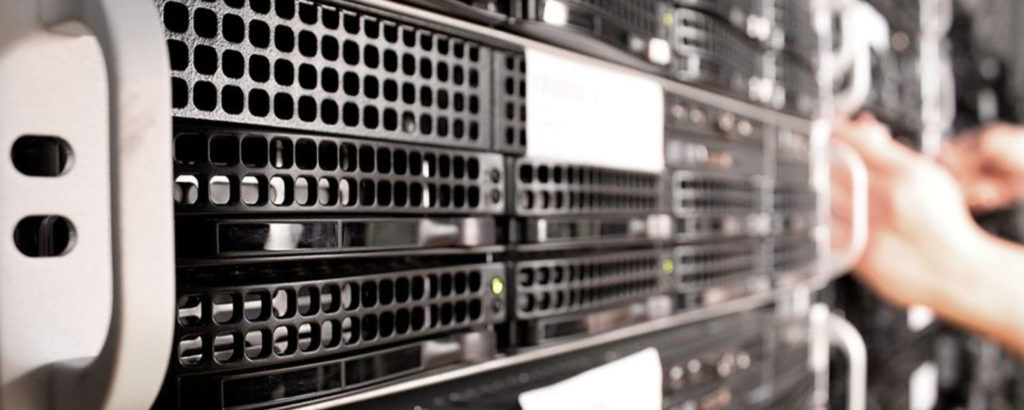
Firewalls are often seen as the first line of defense for a network. This is what makes them an essential part of every organization’s network. In essence, a firewall examines any incoming traffic. Then, it blocks malicious data packets from entering your network. That said, not all firewalls are identical. You have many ways to classify a firewall, but broadly speaking, you have three types: cloud firewalls, software firewalls, and hardware firewalls. Traditional firewalls are often portrayed as software and hardware-based firewalls. So, you have cloud firewalls vs traditional firewalls. How can you know which category is better?
Read on, as I explain what these firewalls are as well as their advantages and disadvantages. I’ll also show you a detailed comparison between cloud firewalls vs traditional firewalls using different factors. Finally, I’ll end with a list of well-known cloud firewalls. I’ll also list their top features to help you make informed decisions. Let’s start by understanding what cloud firewalls are.
What Are Cloud Firewalls?
A cloud firewall, as the name suggests, is a firewall that’s deployed in the cloud. These firewalls sit at the entry/exit point of your cloud resource. They also monitor the packets that stream through. Moreover, they protect your cloud resources by identifying malicious data packets. After that, the firewalls block them from reaching the cloud resource. As a result, they thwart cyberattacks on the cloud and provide 24/7 security for your cloud components.
Here are the advantages and disadvantages of using cloud firewalls:
Advantages
- Easy to deploy
- Quick to scale
- High availability, automated backups, and hassle-free maintenance
- Streamlined access control
- Supportive of multiple cloud deployments
Disadvantages
- Dependent on third-party cloud firewall providers
- No complete control
- Advanced features can slow down your Internet
- Not customizable
Now, I’ll move on to talking about traditional firewalls. I’ll also show you their advantages and disadvantages.
What Are Traditional Firewalls?
A traditional firewall is one that’s deployed on the organization’s network. It sits at the edge of the network. Then, it filters traffic that passes to and from the organization and the public network. Most times, these firewalls compare the incoming packets against a list of blocked parameters. They’ll check the source IP address, port numbers, etc. If the firewall finds a match, it raises an alarm.
Some traditional firewalls also have extended capabilities such as dynamic filtering. Some may also block malicious packets. These traditional firewalls are called next-generation firewalls (NGFWs).
Here are the advantages and disadvantages of a traditional firewall.
Advantages
- Offers high speed and performance
- Has complete control over configuration and operations
- Integrates with custom software when needed
- Is highly customizable
- Doesn’t depend on third-party service providers
Disadvantages
- Requires extra hardware capabilities such as memory and disk space, which can increase your costs
- Needs technical expertise for configuration and setup
- Requires regular maintenance and updates
Thus, these are the advantages and disadvantages of traditional firewalls.
Now, you know what these two types of firewalls are and their pros and cons. Next, let’s compare cloud firewalls vs traditional firewalls. I’ll compare them across several pertinent aspects. That way, you can have an idea of which is the better option for your organizational setup and needs.

Cloud Firewalls vs Traditional Firewalls
As you’ve seen previously, cloud and traditional firewalls come with advantages and disadvantages. So, it’s not about which of the two is better. Rather, you need to know which of them is a better fit for your organization. Let’s now compare the two types of firewalls across 6 factors:
1. Setup and Deployment
Cloud firewalls are simple to set up. This is because they’re just software programs that have to get deployed. No hardware is associated with their setup.
Traditional firewalls, on the other hand, take a longer time to set up. That’s because they involve both hardware and software. Overall, you’ll need some technical expertise when setting up a traditional firewall.
2. Scalability
Cloud firewalls are highly scalable and don’t require a ton of effort either. To clarify, the most effort you’ll need is to reach out to the vendor’s customer support to let them know about your additional needs.
A traditional firewall isn’t so easy to scale. It can require additional hardware and possibly even more deployments, depending on how you’re scaling your business.
3. Maintenance
Overall, cloud firewalls are hassle-free to maintain. Specifically, the service provider handles all the required updates, patch management, and other routine tasks.
By comparison, in the case of traditional firewalls, your IT department must handle these tasks. As a result, this will require more resources and effort.
4. Control and Flexibility
This is one area where traditional firewalls score big over cloud firewalls. A traditional firewall gives you complete control over its performance and operations. Furthermore, you can customize the setup and operations, and integrate it easily with custom applications. In addition to that, you have complete control over its operations, resource usage, and performance.
On the other hand, cloud firewalls don’t offer this level of granular control and flexibility. That’s because they’re offered by a third-party service provider.
5. Availability
Cloud firewalls have built-in redundancy and backups as they’re offered by vendors. This means that when the primary firewall fails, a backup firewall takes over automatically.
Traditional firewalls may not have the same levels of availability unless you have backup firewalls in place. Even then, this can be expensive to set up and manage.
6. Multiple Environment Compatibility
In general, cloud firewalls can be easily extended to multi-cloud environments.
On the other hand, traditional firewalls require additional resources and money to extend their capabilities across networks.
Here’s a convenient table for you that provides a bird’s eye view of cloud firewalls vs traditional firewalls.
| Features | Cloud Firewalls | Traditional Firewalls |
| Setup and Deployment | Easy | Moderately difficult, may require technical expertise |
| Scalability | Yes, simple and requires no additional effort | Yes, may require additional hardware and deployment |
| Maintenance | Handled by the vendor, no additional cost or resources | Managed in-house by the IT department, entails additional costs and resources |
| Control and Flexibility | Moderate | High |
| Availability | High | Moderate |
| Multiple Environment Compatibility | Easy to extend to multi-cloud environments | Requires separate setups |
Thus, this is a clear comparison of cloud firewalls vs traditional firewalls. From the above table, it’s clear that we can’t have a winner. Rather, the choice depends on your organizational setup, your security goals, available resources, business growth forecasts, and more. I hope the above table acts as a good starting point to help you make informed decisions.
Next, let’s take a brief look at some popular firewalls for small businesses.
KerioControl
KerioControl is an advanced firewall for small and medium businesses. It’s a comprehensive solution that detects threats and blocks viruses to protect your networks. Plus, it also uses techniques to control your traffic, filter your content and applications, and more. Here are some of its salient features:
Features
- Is highly available as it comes with failover protection
- Offers flexible deployment to suit different environments
- Comes with a router, gateway anti-virus, VPN, and Intrusion Detection System (IDS)
- Generates reports for auditing and compliance
- Distributes traffic across networks through its built-in load balancer
- Provides a customizable web-based console to configure and administer your firewall’s activities
- Has an advanced web content filtering process to scan 141 categories of web content and applications, such as HTTPS, P2P traffic, antivirus filtering, and more
- Uses snort-based behavior analysis to quickly identify emerging threats. Snort is a packet sniffer that analyzes data packets and their behavior to identify suspicious ones
In summary, KerioControl is comprehensive and easily secures your network from malicious data packets. Its high availability, granular control, and ease of access and use make it a popular choice today among small and medium business owners.
Cisco Firewalls
Cisco offers a series of different firewall products to meet the unique needs of different businesses. For instance, its 1000 Series is well-suited for small businesses and branch offices. Conversely, the 2100 Series is better for larger organizations. On the other hand, the 4100 series is a good choice for large enterprises. The 9300 series also works well for high-performance data centers.
With this wide array of choices, make sure to pick the one that best meets your needs. Let’s look at some key features:
Features
- Provides integrated hardware and software that’s managed through a single console
- Offers three deployments: centralized, cloud-based, and on-box; Cisco recommends centralized and on-box for small businesses
- Helps unify policies across your entire organization
- Streamlines identity management and, as a result, this enhances employee productivity
- Strikes a balance between control and efficiency, and provides both
- Is highly developer-friendly
Overall, Cisco is a brand associated with scale and quality, and all of its products reflect this reputation. A bonus is that you can combine one of their firewalls with other Cisco products, such as CX services, to get a seamless security infrastructure.
WatchGuard Firebox T40
WatchGuard’s Firebox T40 is an enterprise-grade firewall designed for small businesses and branch offices. It’s fast and can provide advanced threat protection for your network. In particular, it comes with features such as anti-spam, cloud sandboxing, URL filtering, IPS, and more. Here are some more important features of this firewall:
Features
- Is easy to deploy and doesn’t need technical expertise
- Uses Power over Ethernet (PoE), so it doesn’t require additional hardware
- Is ideal for network optimization
- Provides enterprise-level security
- Supports remote deployment
To sum up, WatchGuard’s Firebox T40 is a feature-packed firewall that provides comprehensive security. Its advanced features add to its appeal.
Thus, these are some of the popular firewalls available today. Before we end, let’s quickly recap what you’ve learned in this article.
Final Thoughts
Firewalls are an essential part of any organization’s security. Broadly, you can divide them into cloud and traditional firewalls based on their deployment and usage. Accordingly, each category comes with its own advantages and disadvantages.
I showed you a detailed comparison of cloud firewalls vs traditional firewalls. Then, I provided a summarized table for your convenience highlighting their differences. Please feel free to refer back to it in the future should you need to.
Finally, I showcased three popular firewall providers in the market today. I hope all this information helps you choose a firewall that best fits your organization’s needs.
Do you have more questions about cloud firewalls vs traditional firewalls? Check out the FAQ and Resources sections below!
FAQ
Are firewalls necessary for my cloud operations?
Yes, firewalls are necessary, even if your operations are 100% cloud-based. They help keep your business safe from cyberattacks. At the same time, they also help by helping you comply with security standards.
What’s the single biggest difference between cloud firewalls vs traditional firewalls?
A cloud firewall is highly data-centric. It protects your assets using strategies such as multi-factor authentication, encryption, etc. On the other hand, a traditional firewall uses physical hardware and software to secure your network. In other words, cloud firewalls are only software-based while traditional ones can be both hardware and software-based.
How can I protect my network if I run a small business?
Firewalls are your first line of defense. You should choose an appropriate firewall depending on your organizational setup and nature of operations. For example, if you have a 100% cloud-based operation, then a cloud firewall is a good choice to begin with.
How do firewalls work?
A firewall typically sits where your networks connect with other networks. It examines every packet that passes through your network. Then, it compares the packet content with a list of blocked IPs, ports, and protocols. If a match occurs, the firewall will raise an alarm to alert you. In addition, a firewall can block packets if it comes with Intrusion Prevention System (IPS) capabilities.
Can a firewall prevent a cyberattack?
This depends on the attack. For instance, most firewalls today can prevent a DDoS attack. Many others can also stop ransomware and malware attacks. Advanced firewalls, such as KerioControl, are better at preventing more sophisticated attacks. But often, firewalls alone aren’t enough to keep cyberattackers out. You’ll have to combine them with other security strategies such as password policies, vulnerability patching, access rights control, and more.
Resources
TechGenix: Newsletters
Subscribe to our newsletters for more quality content.
TechGenix: Article on the Best Next-Generation Firewalls
Learn more about the best NGFWs for your organization.
TechGenix: Article on the 8 Types of Firewalls
Educate yourself on the eight types of firewalls.
TechGenix: Article on Top Firewalls for SMBs and Enterprises
Learn more about the top firewalls for SMBs and enterprises.
TechGenix: Article on Single and Multi-Vendor Firewalls
Understand the differences between single and multi-vendor firewalls.
TechGenix: Article on Why We Need Traditional Firewalls
Learn more on why we still need traditional firewalls.



